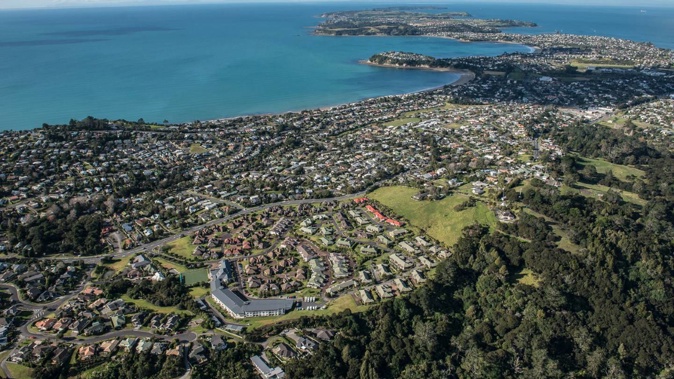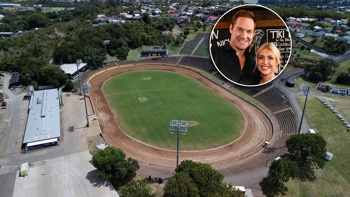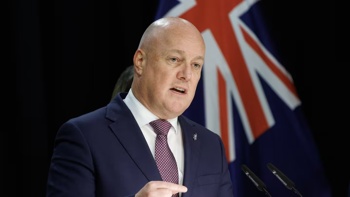
Listed retirement company Arvida Group, with $3.6 billion of assets, pushed up net after-tax interim profit 18 per cent from $75.7m to $89.2m after revenue and property valuations rose.
The company bucked the trend for revaluations to fall, rising from a $69.6m gain in the September 30, 2021 half-year to an $88.6m gain in the September 30, 2022 year.
Revenue was up 16 per cent per cent to $109m, after a full period contribution from its new six-village asset Arena Living, bought for $345m last year.
The company has a big presence in Tauranga with Bethlehem Shores, nearby Bethlehem Country Club, Bethlehem Views, Copper Crest and Ocean Shores at Mount Maunganui.
Gearing is at the low end of the range at just 28 per cent, with the company aiming to borrow no more than 25 to 35 per cent of its asset value.
Jeremy Nicoll, chief executive, said strong demand resulted in solid sales.
The total gross value of all occupation rights sold in the latest half-year increased 31 per cent to $168.2m. This was driven largely by a 59 per cent rise in resales to $93.5m - properties sold when residents get ill and need to move to higher levels of care or die.
Settlement volumes comprised 164 resales and 105 new sales. Arvida reported resale gains up 138 per cent to $28.3m on higher pricing and volume.
Prices of settled resales were on average 6 per cent above pricing assumed by the independent valuers in the March valuations, the company said.
But staff are in short supply and wages are rising.
A combination of restricted admissions to Arvida’s hospital beds and higher employee costs was felt.
“The operational challenges of managing Omicron, as well as very difficult Government funding and immigration policy settings, had had a considerable impact on care profitability in the period,” Nicoll said.
The Government this week announced nurse pay parity and Arvida welcomed that.
Nicoll said providing overseas nurses with an immediate pathway to New Zealand residency would help the sector get more nurses and alleviate extraordinary stress many firms face.
/cloudfront-ap-southeast-2.images.arcpublishing.com/nzme/ZX7RUIM3TXR4MLDUVGNULST6IQ.jpg)
Jeremy Nicoll, Arvida Group chief exeuctive Photo / Dean Purcell
He didn’t mention it by name but Ellerslie’s Waiatarua Mercy Parklands rest home in Auckland is shutting at the end of January, meaning the remaining approximately 70 patients must go.
That is one of the clearest signs of stress in the aged-care sector lately.
Management of that 97-bed Auckland Catholic rest home said it was forced to close, so families and relations of residents must find alternatives in the stretched sector.
That rest home was losing $100,000/month before the closure was announced. Staff shortages were one of the main reasons for its shutting.
Chairman Arthur Morris said it was “like a tap turned off in April”, referring to the time this year when applications for positions there stopped.
Asked by the Herald about Mercy Parklands today, Nicoll said: “It’s very, very tough on the residents, their families and the staff. It’s just a strong illustration of how Government funding for older New Zealanders hasn’t kept pace with the cost to provide that care.”
The company employs 250 nurses on its payroll, all paid less than they would earn with a district health board.
“The care side of the business needs to be funded appropriately to enable a high level of services for older New Zealanders. At this stage, Government funding is an impediment to that,” Nicoll said.
Asked why Arvida didn’t pay its nurses more so it didn’t have to shut places like Strathallan’s hospital he said: “The sector pays nurses more than what the Government funds them for but this removes the profitability of the care sector and causes issues like closing Mercy Parklands because the funding is not enough to sustain the ongoing operations.”
Arvida’s total assets now stand at $3.6b, up from $3.4b at the start of the financial year, reflecting increased development activity and villages’ valuations.
Asked on the investor call today about the housing market’s effect on retirement village sales, Nicoll said a “bit more of a grace period” was given to allow some people time to sell their homes to move into villages. Arvida wanted to know where people’s houses were, what valuations were and which agents were in charge of selling them, he disclosed.
His comments indicated a stronger level of interest by retirement village companies in the slowing house sales market. But Nicoll did emphasise to the analysts and investors this morning that Arvida sales remained strong, although the sector had endured tougher times during the pandemic.
Harbour Asset Management’s Shane Solly congratulated Nicoll on the result, saying he knew times had been hard.
Arvida’s Timaru hospital at Strathallan remains closed after the company couldn’t get enough staff to run the 30-bed unit and shut it in June. A refurbishment of the hospital wing is due to be finished by Christmas, so will re-open in January.
“We could probably open it on a limited basis now and we’ve got more registered nurses coming from India, Fiji and Germany,” Nicoll said.
The company announced today that embedded value in the portfolio grew from $977m to $1.1b. The net tangible asset backing increased to $1.93 per share.
An 11ha site in Canterbury’s Lincoln was added to the development pipeline with an additional two greenfield sites under conditional contract.
At Lincoln, Arvida plans 250 units and said the vendor had ongoing rezoning obligations. Work there might not start until 2026.
Arvida’s development pipeline could see about 2100 new places developed.
The high proportion of villas in the pipeline allows construction activities to flex more readily to meet demand, the company said, indicating it could build more intensively on sites than it plans now.
Greenfields developments are under way in Kerikeri where 281 units will be built, at Te Awamutu where 195 units are planned, Waikanae with 248 units and Waimea Plains at Richmond where 250 units are planned.
Development margins for Arvida increased and are now at 20 per cent - the gain it gets between spending the money creating new homes for the aged and the end valuation once those new homes are built and ready to live in.
About 48,000 New Zealanders now live in retirement villages.
Jonathan Ash, development general manager, has said the 2023 year’s construction programme aimed to result in 250 new units being built, up from 221 new units built in the 2022 financial year.
“We are on target to exceed our FY23 construction programme, with 51 new units to be delivered this first half-year and another 218 units planned for delivery in the second half-year,” Ash said.
This will result in an annual total of 270 new units.
Much of the second half’s delivery is to be in developments at Auckland’s Aria Bay in Browns Bay where 57 apartments are being built and Cambridge’s Lauriston Park where 63 new care suites are rising.
The rest of the units being built are in eight other villages.
A dividend of 2.5cps was declared for the latest six months, paid on December 21.
Shares have been trading down 37 per cent annually around $1.20, giving the company a market capitalisation of $868m
Take your Radio, Podcasts and Music with you









